Remember, remember the thrust of Movember
What is Movember? It’s an annual event involving the growing of moustaches during the month of November to raise awareness of men’s health issues including:
- prostate cancer
- testicular cancer
- men’s suicide.
The Movember Foundation runs the Movember charity event.
Will the second national lockdown overshadow Movember?
Hopefully it’ll have the opposite effect.
Physical and mental health was a key part of the narrative around this year’s first UK-wide lockdown and will inevitably drive debate again during November.
Given Movember’s strong message and established aims, it’s likely that adding lockdown into the mix will spark an even wider conversation around men’s health.
That can only be a positive thing.
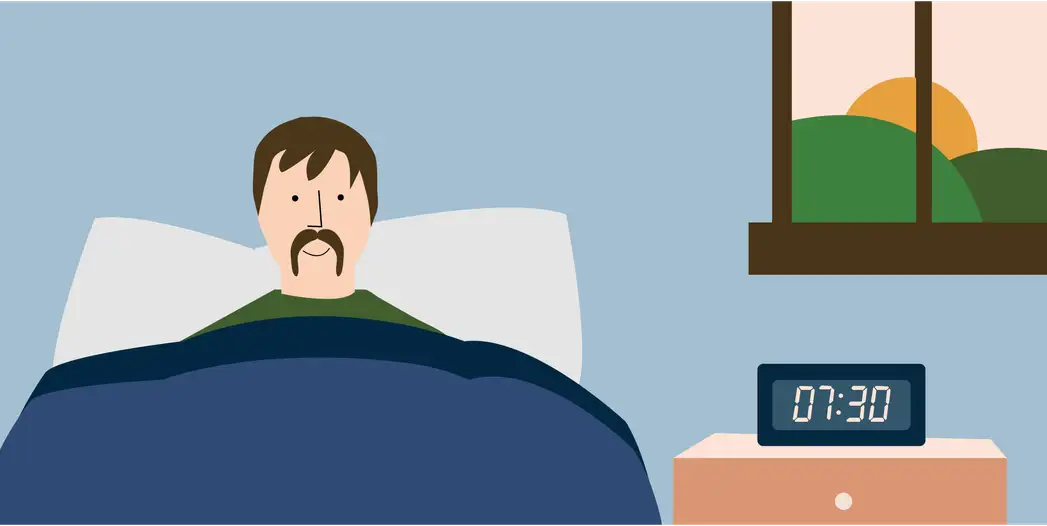
Let’s wake up to the value of sleep this Movember
It might surprise you just how much a settled sleep routine could improve your short-term and long-term mental and physical health.
Sleep’s power to improve mental health is well documented.
However, it has a hugely positive effect across the board. It boosts your:
- cognitive ability
- physical health
- emotions.
Think of sleep as a tool for strengthening your resilience. And right now all of us need to be extra resilient.
Is sleep for the weak?
Not at all. We often hear that sleep is for wimps. In fact, sleep is for real men — not for wimps. Here’s what our Director of Sleep Science, Dr Neil Stanley had to say about the matter:
There’s an awful lot of nonsense on the internet about the sleeping habits of the rich and famous and how less sleep equates to more success. Worryingly, men seem to believe the hype and many have this macho idea that surviving on the bare minimum of sleep is something to be proud of. It’s not.
Sufficient sleep is beneficial in so many ways and is absolutely vital to better physical and mental health.
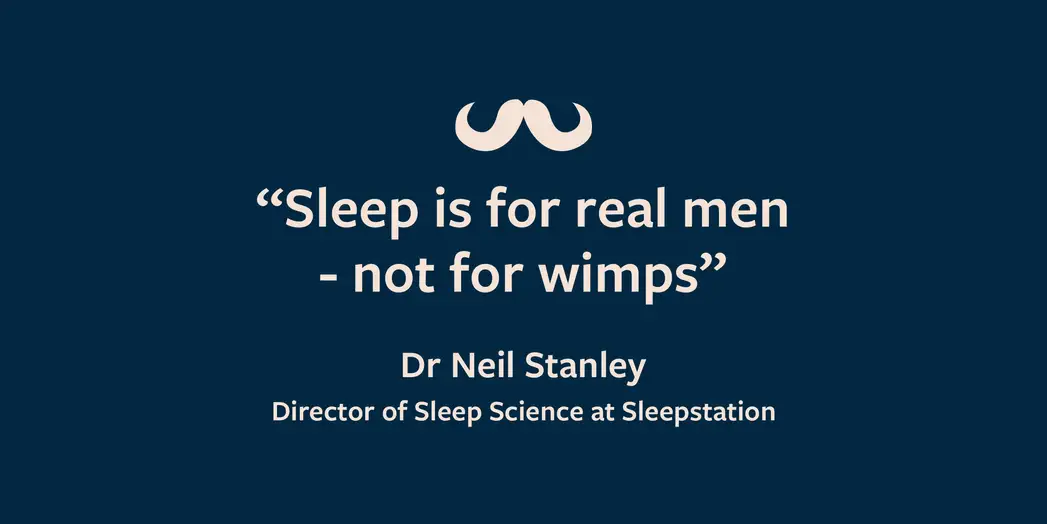
A sleep myth debunked
There is a widely held perception that success, power and influence are directly related to existing on the bare minimum of sleep.
However, we’ve hit the history books and checked the science. There’s very little evidence that history’s most lauded short sleepers actually slept as little as they would have us believe!
In the majority of cases, claims of getting by without much sleep are directly linked to self-glorifying propaganda and self-aggrandisement.
We all know someone who boasts about how little sleep they need and the inference is that it makes them better than the rest of us.
In fact, optimum sleep equates to optimum resilience.
The more sleep you can get the more likely you are to feel better equipped to meet the challenges ahead.
The history of light sleepers
Napoleon was famous for plotting victories without his head touching the pillow. However, his private secretary, Louis Antoine Fauvelet De Bourrienne, suggested a reputation for staving off sleep was all part of a carefully constructed PR campaign.
He wrote:
If Napoleon’s enemies, by way of reproach, have attributed to him a serious periodical disease, his flatterers, probably under the idea that sleep is incompatible with greatness, have evinced an equal disregard of truth in speaking of his night-watching.
According to one of his most important aides, General Armand de Caulaincourt, Napolean ‘needed much sleep but he slept when he wanted — during the day as well as at night’.
John Wesley, basing his ideas on the concept of ‘Christian sleep’ and the belief that God’s servants stayed awake praying for long periods, was a keen advocate of limiting sleep.
The English cleric and father of the Methodist movement believed early rising was ‘favourable to health, business and devotion’. He went on to say:
The practice of early rising is not only enforced in the bible; it is exemplified in the conduct of patriarchs, prophets and kings.
There is evidence that influential men have managed with minimal sleep in the past. But even they understand its long-term value.
Nikola Tesla — the groundbreaking electrical engineer — never slept for more than two hours a night. In 1903 he insisted: “Every hour stolen from sleep is two hours taken from life itself.” But Tesla knew he needed to sleep even if it meant taking a break.
In 2020 Vladimir Putin is a firm believer in the value of sleep. On the face of it, Russia’s president is a workaholic world leader with little time to wind down. But when one four-year-old boy asked Putin if it was difficult being a president and how many hours he slept the reply was telling. “You’ll manage,” said Putin. “And if you like sleep you’ll be a healthy president.”
The list of male role models seemingly eschewing sleep is long and compelling.
It’s easy to understand why men might believe the hype.
However, believing the science is a much better bet. And there are just as many powerful men who point to sleep as their most valuable ally.
Raising a glass to better sleep during lockdown
It’s possible to liken the effect of missing sleep to drinking too much alcohol.
Men might be unwilling to address problems associated with poor sleep but many can relate to how they feel following a couple of pints.
And there’s a direct comparison.
The average person needs about eight hours of sleep per night and getting less than that can have a significant impact on your brain function.
A person who needs eight hours sleep per night — and gets only six — is impaired to the same degree as if they drank two pints of beer before work.
When we’re under the influence of alcohol we aren’t aware of the effects — we often think we’re fine.
It’s the same when we miss sleep. However, failing to get your full complement of sleep really isn’t fine. It can have a serious impact on your daily life.
You wouldn’t turn up to work drunk so why turn up sleepy?
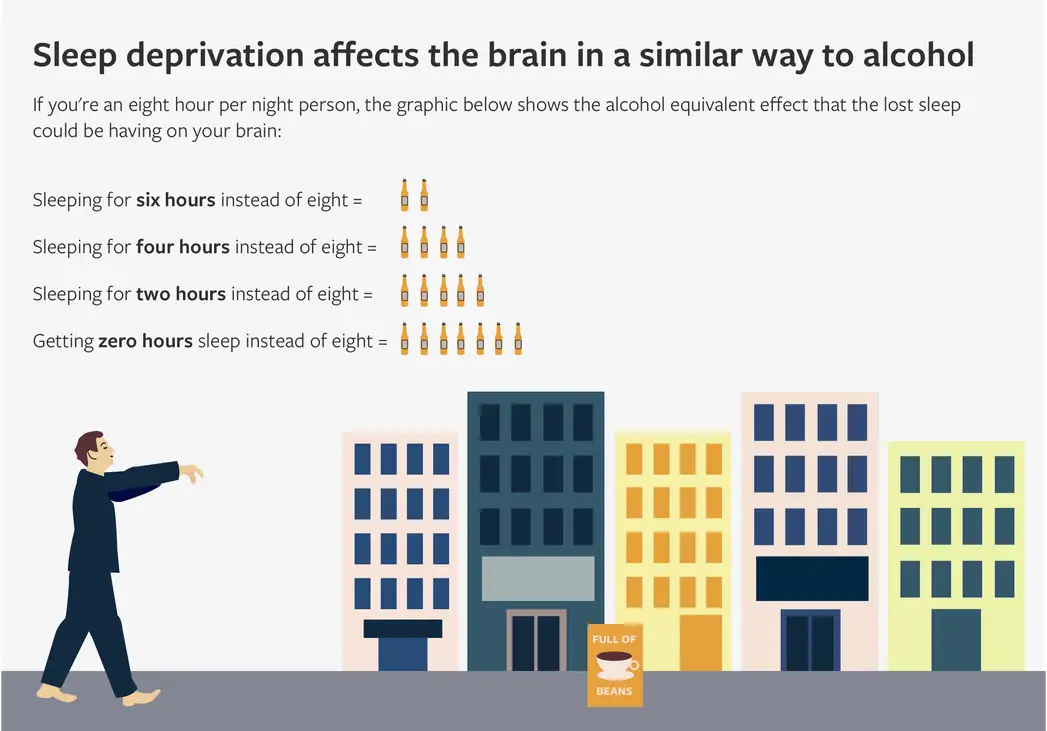
Movember is the month for men to start talking sleep
Earlier this year we carried out research to investigate the apparent surge in people coming forward for help to manage insomnia during the UK’s first lockdown.
And with a new month-long lockdown in place across England it’s worth revisiting findings which highlight the disparity in the numbers of men and women seeking sleep support.
Sleepstation compared referral rates in one area during a six-week period with a comparable period six months before the pandemic.
The study analysed more than 3,000 referrals and, in both cases, men accounted for less than 30 per cent of the total.
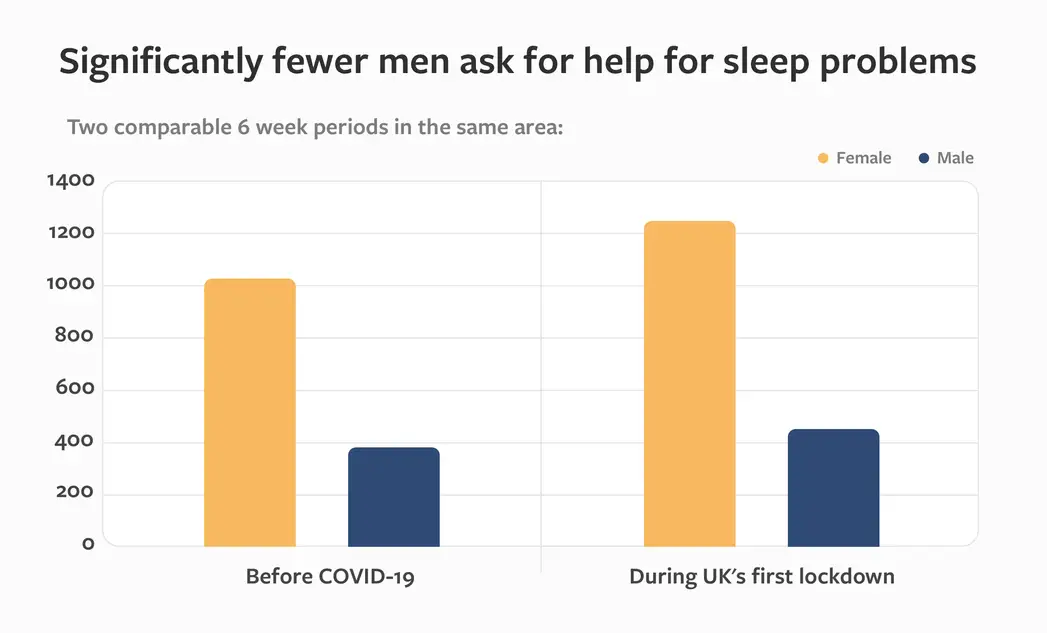
Why men should lock down…and open up
We all know that men have a tendency to bury their heads in the sand and ‘wait until tomorrow’ when it comes to health.
And it’s no different where sleep problems are concerned. A reluctance to seek help has the potential to affect physical and mental health across the board.
Men are just as likely to experience sleep problems — and the associated side effects — as women. However, far fewer men come forward for treatment. Why is that?
It may be to do with the myth that ‘sleep is for the weak’ or it may be that men simply don’t feel that a lack of sleep is worth worrying about.
Whatever the reason, more men should be addressing their sleep problems openly and with confidence.
At present, men make up less than 1/3 of the people who come to us for help
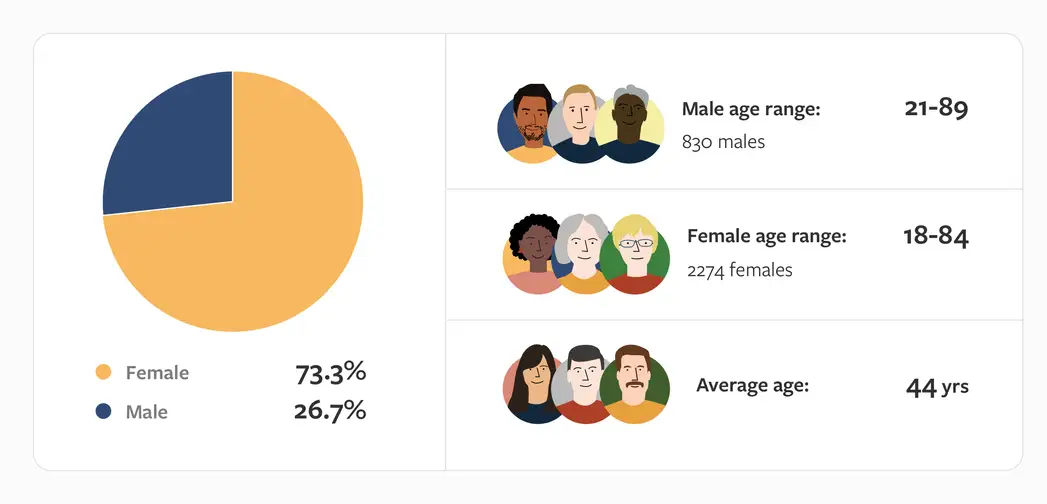
We’d like to help change this statistic.
Movember is the perfect time to have that first conversation and to start the transformative journey towards better sleep.
Look after yourself and protect the NHS during lockdown
A new national lockdown is bound to lead to fresh anxiety. It could even impact upon the quality of your sleep.
Not surprisingly, an inconsistent sleep schedule, coupled with stress, is leading to a number of issues around sleep right now.
We’re here to help but there is also a lot that you can do to help yourself.
With the NHS under increasing pressure, there’s never been a better time to think about ways we can take care of ourselves.
While we should never feel like we can’t ask for help from the NHS, there are things that we can do to prevent us requiring medical support further down the road.
And the best starting point is our sleep.
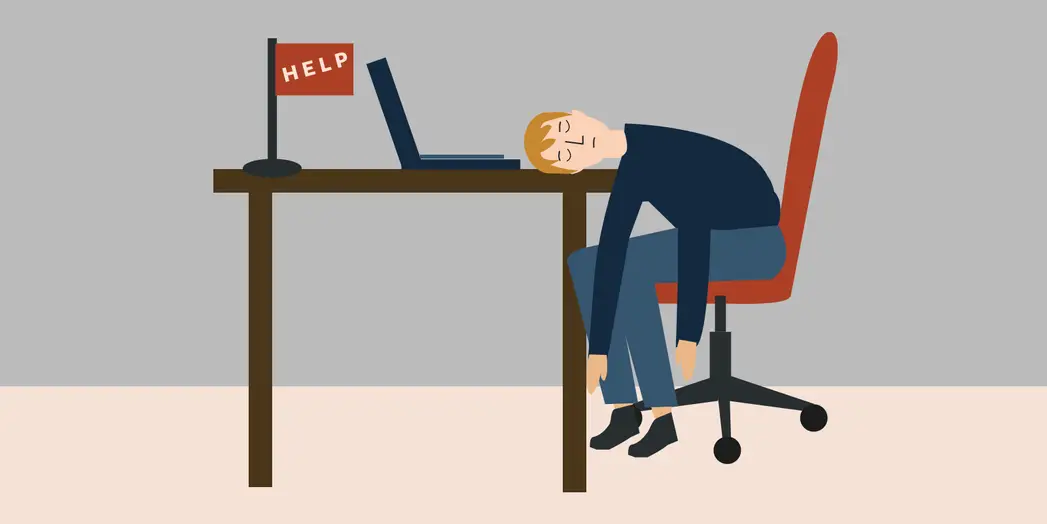
Don’t be afraid to ask for help
Sleep is a basic human right. If you’re not getting enough sleep then it’s important that you prioritise addressing the issue.
During the first lockdown, Sleepstation conducted a nationwide survey seeking to better understand the nation’s sleep habits — polling more than 2,700 people across the UK in the largest survey of its kind.
And although two thirds of respondents admitted to having a sleep problem, almost half of those questioned weren’t sure where to go for help.
That’s a genuine concern and we’re keen to do our bit to fix this worrying situation.
Men everywhere need to know that their sleep can be fixed. And by following the advice in the free guide we’ve provided or asking for help to fix your sleep through Sleepstation you can address a whole range of associated physical and mental health problems by working on improving your sleep.
Summary
- Movember is a time to talk health and improve sleep.
- Lockdowns can lead to increased anxiety and more serious mental health problem.
- It’s a myth that ‘sleep is for the weak’.
- There’s no hard evidence that sleeping less equates to more success.
- Missing sleep can seriously impair your judgement and leave you vulnerable.
- Optimum sleep leads to maximum resilience.
- Men need to talk about their sleep more openly and more often.